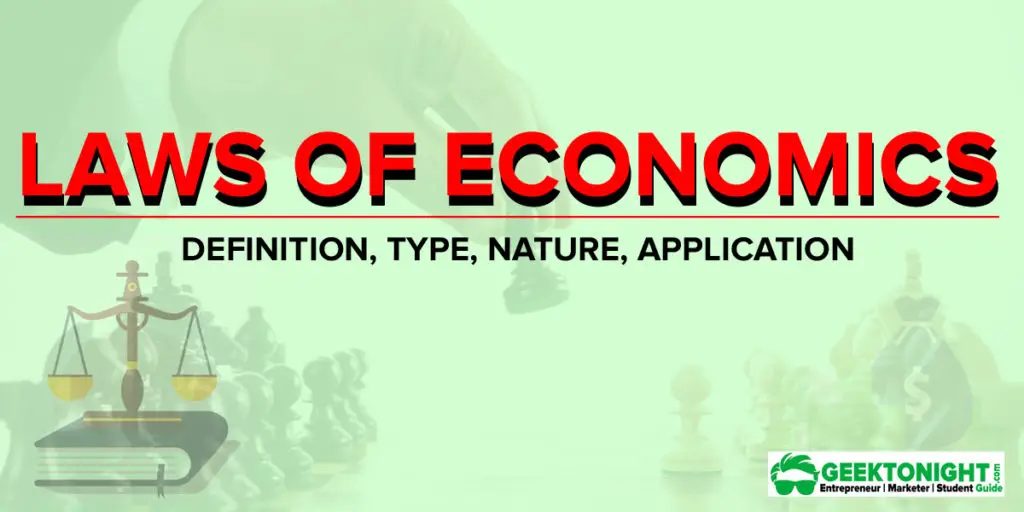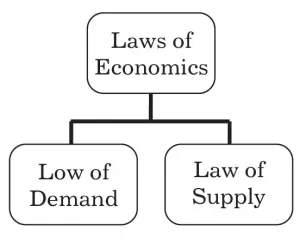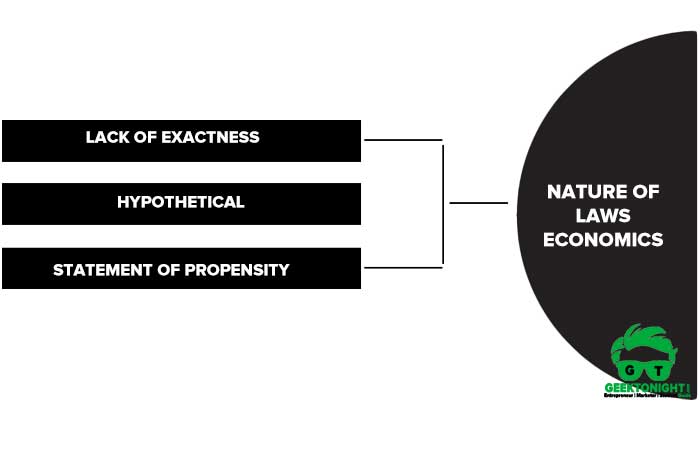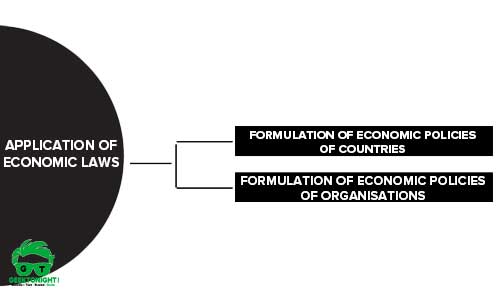What is Laws of Economics?
Marshall gave laws of economics definition as Laws of Economics or statements of economic tendencies, are those social laws, which relate to branches of conduct in which the strength of the motives chiefly concerned can be measured by money price.

Table of Content
Laws of economics are based on a set of generalisations assumed to govern economic activity. In economics, there are two basic laws.
Also Read: What is Economics?
Laws of Economics
Two type of Laws of Economics are:

Law of demand
Law of demand is one of the basic laws of economics, according to which demand rises in response to a fall in prices while other factors remain constant, such as consumer preferences and level of income of consumers.
In other words, customers buy a high quantity of products at lower prices and vice versa.
Law of supply
Law of Supply states that supply diminishes when there is a fall in prices and increases with the rise in prices while other factors are unchanged.
This means that if the price of a product X rises, there will be more products to offer to customers by sellers and vice versa.
Also Read: What is Law of Supply?
Nature of Laws of Economics
In order to understand the importance of laws of economics and their utility in daily business practices, it is required to comprehend the nature of these laws.
While studying the law of economics, it is important to note that all economic laws are based on certain assumptions.
The following points describe the nature of economic laws:

Lack of exactness
In comparison to the laws of natural sciences, the law of economics are not exact. An economist can only state the events that are likely to happen in the future but cannot be assured of their occurrence.
There are three reasons for the lack of exactness in economic laws.
• Firstly, these laws are concerned with human behaviour which is dynamic. The uncertainty of human behaviour makes it difficult to predict the actual course of action for the future.
• Secondly, due to changes in human attitudes, perceptions, and preferences, factual data is difficult to be collected, which is the base of economic laws.
• Thirdly, the business environment is so dynamic that any change in it will simply falsify the economic prediction.
Hypothetical
Law of economics is always based on the fulfilment of specific conditions, which means these laws are subject to the hypothesis.
For example, the rise in demand for a product is subject to a condition, i.e. reduction in price and other factors are constant. Moreover, the supply must not reduce during that period.
Statement of propensity
As discussed, economic laws require certain conditions to be fulfilled to be true. However, these conditions cannot be exactly predicted.
For example, an increase in demand for a product tends to increase in its rice. However, the price may not rise as it is dependent on supply too.
Also Read: Difference Between Micro and Macro Economics
Application of Economic Laws
As mentioned earlier, laws of economics concepts have a scope in various sectors.
Let us now study the application of economic laws:

Formulation of economic policies of countries
The economic climate changes from one country to the other depending on various factors, such as standard of living of people, level of national income, and composition of the population.
Every country requires certain policies to run its economy successfully. Economic laws provide a strong base for the formation of economic policies of different countries.
Formulation of economic policies of organisations
In microenvironment, organisations differ from each other. To run successfully, organizations apply economic laws to form their policies.
Economic laws help organisations to plan their business strategies related to production, costs, and pricing.
Also Read: What is Business Cycle?
Business Economics Tutorial
(Click on Topic to Read)
Go On, Share article with Friends
Did we miss something in Business Economics Tutorial? Come on! Tell us what you think about our article on Laws of Economics | Law of Supply |
Law of Demand | Business Economics in the comments section.
Business Economics Tutorial
(Click on Topic to Read)










